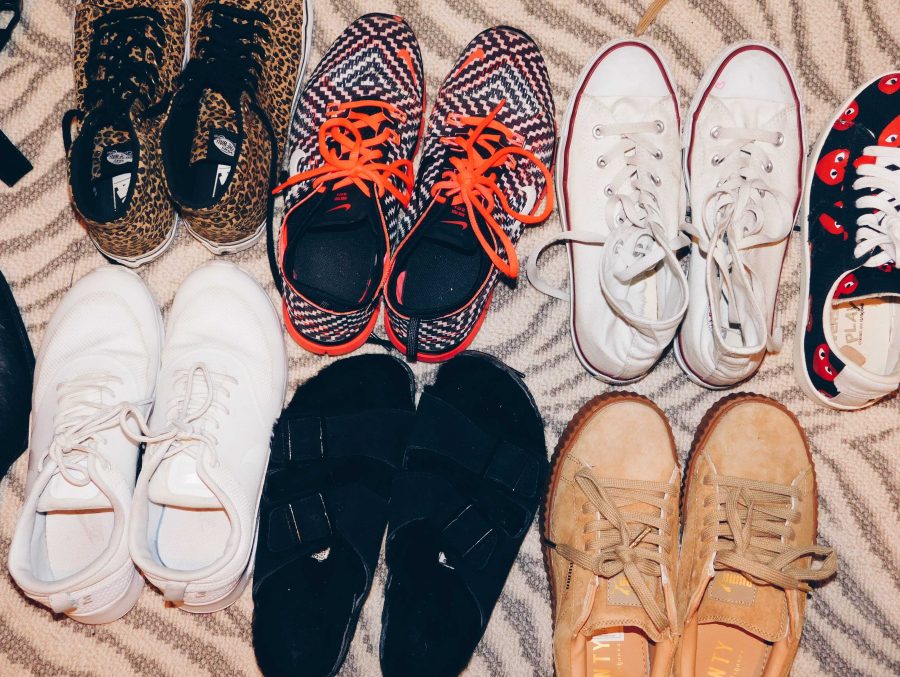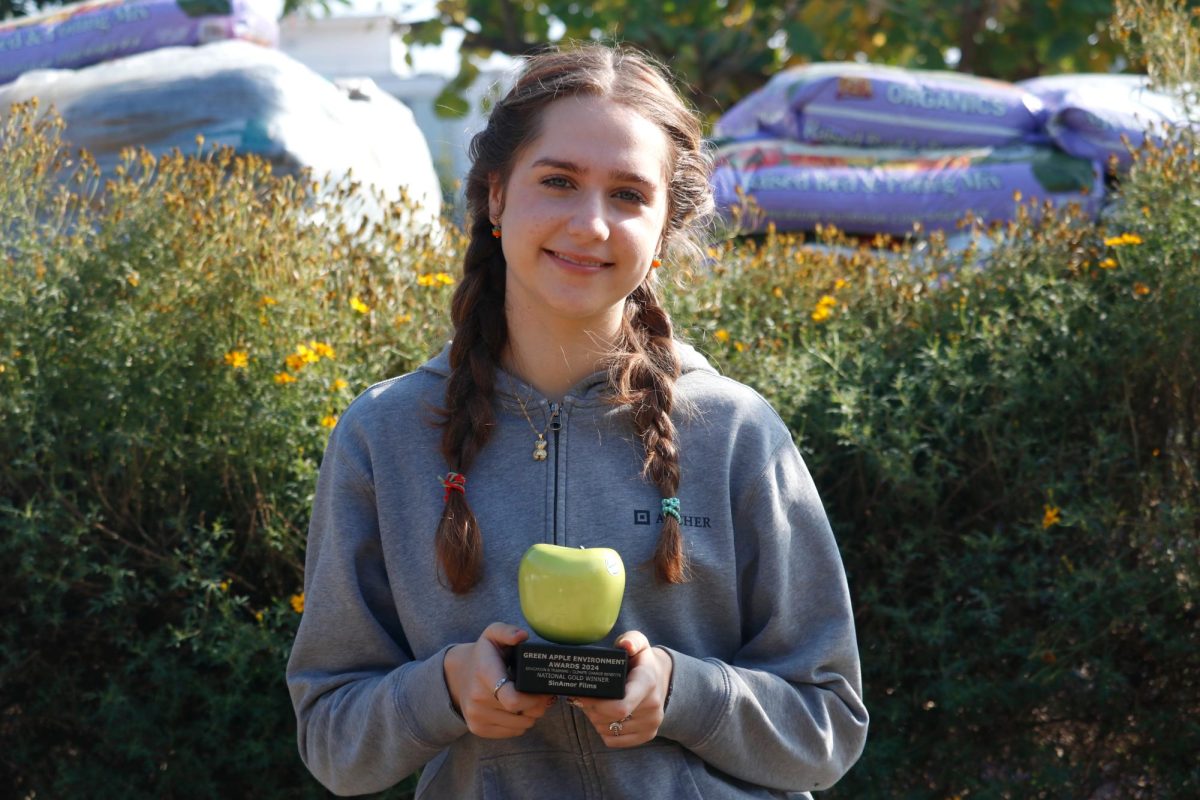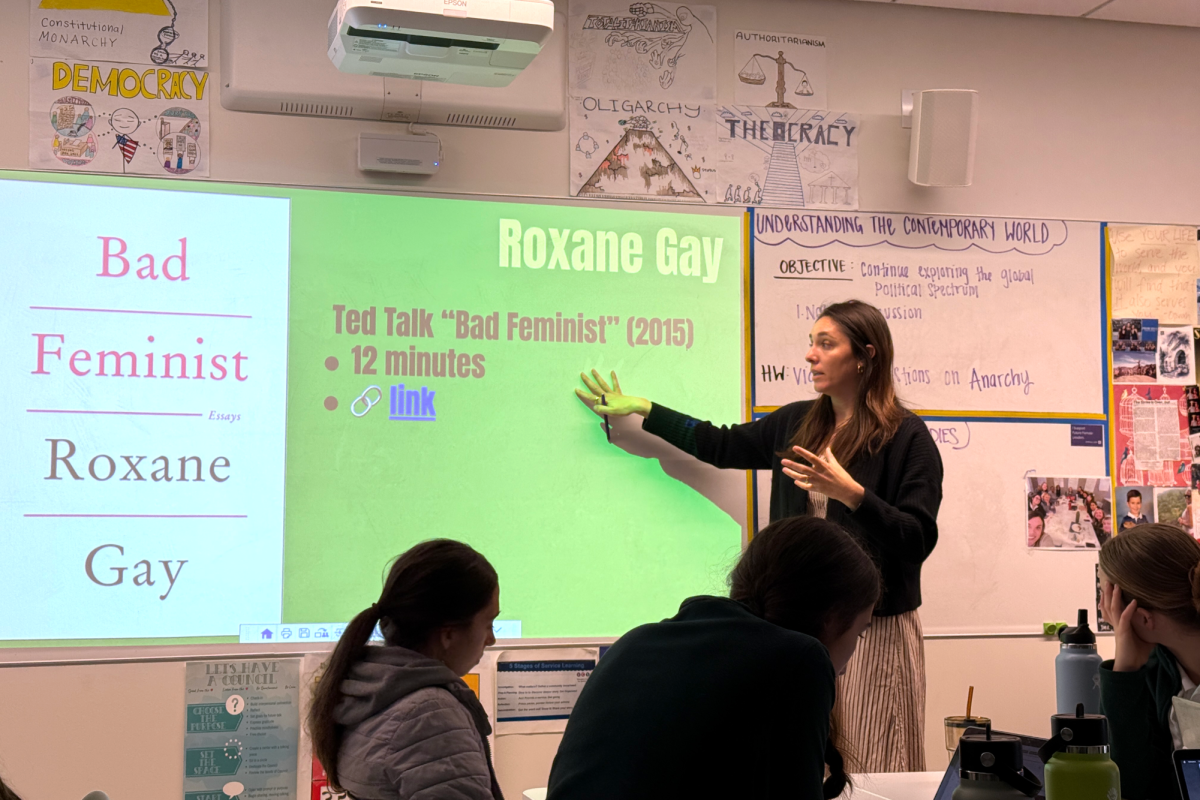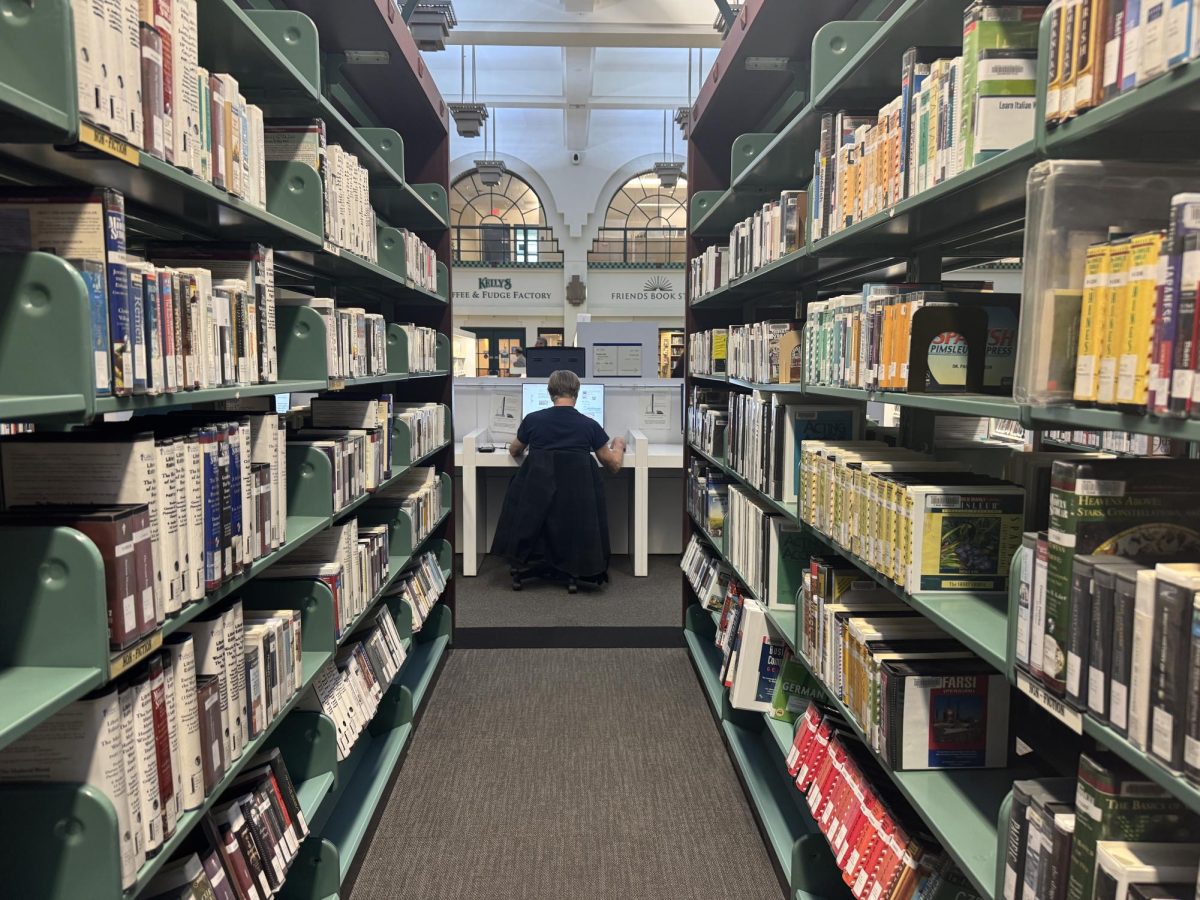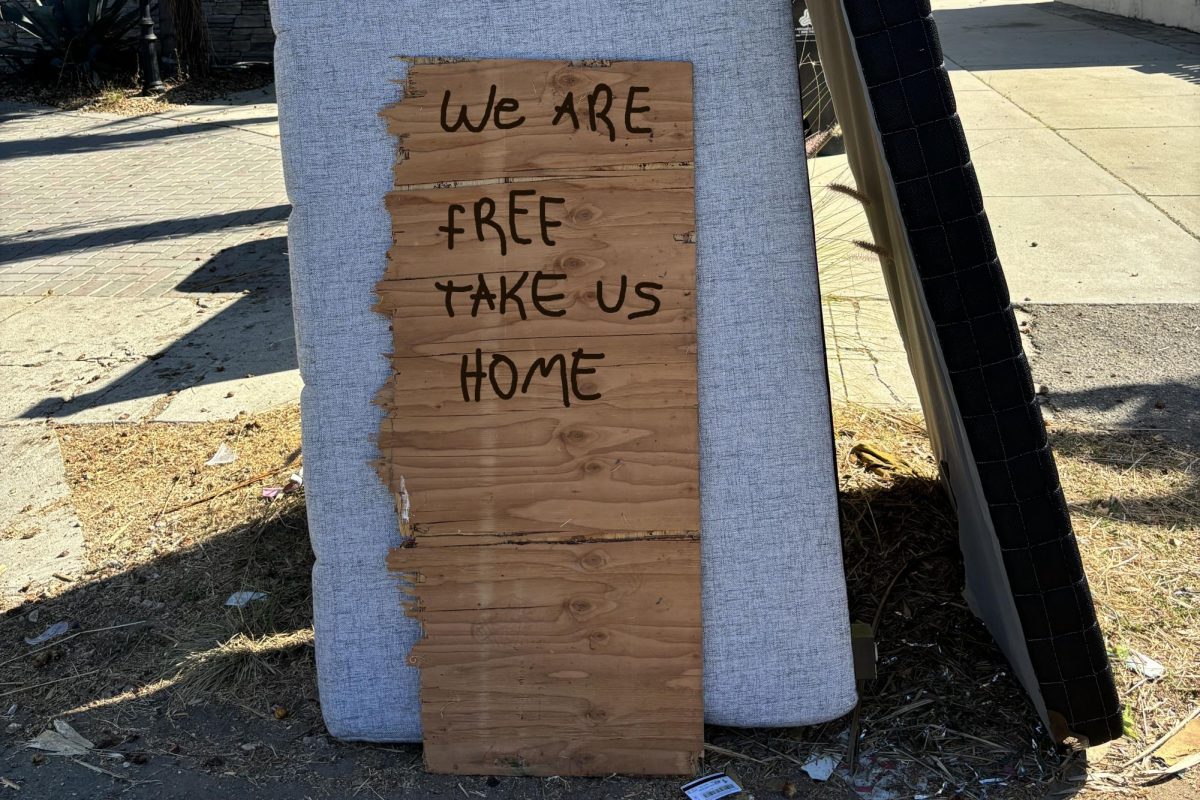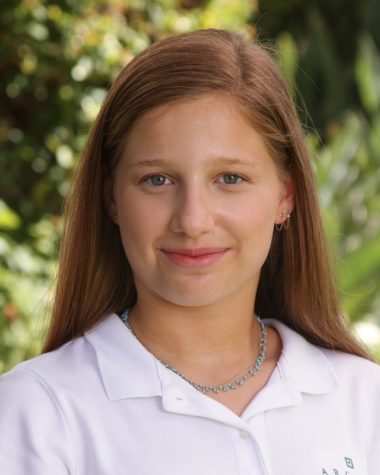Shoes, houses, bags, jobs, clothes and cars are just some of the items associated with socioeconomic status. But in the Archer community, the conversation regarding the subject is ongoing.
According to Archer’s tuition and fees page, tuition for the 2015-2016 school year was $35,100 and $3,500 for “transportation, services & facility fee” which includes the one to one Laptop Program. Additionally, 24 percent of the student body received financial assistance for a total of more than 3.3 million dollars awarded for the Flexible Tuition program. The diversity in students’ socioeconomic status causes tension in a school known for its focus on community.
“It’s hard to talk about. I think it’s something that is such a private part of everyone, so it makes us uncomfortable — and we try to support each other, but it’s difficult to know how much we can talk about it,” Athletics Department Chair and ninth grade dean Kristen Benjamin said.
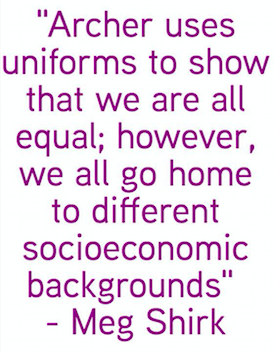 “Society gives a lot of messages that it’s a taboo topic to talk about money, I also think it goes back to our U.S. history that this country was going to be founded as a classless country,” history teacher and Diversity Coordinator Beth Gold said.
“Society gives a lot of messages that it’s a taboo topic to talk about money, I also think it goes back to our U.S. history that this country was going to be founded as a classless country,” history teacher and Diversity Coordinator Beth Gold said.
Here at Archer, faculty and administration strive to create an environment where girls are able to feel comfortable with their status by having them wear uniforms.
“Archer uses uniforms to show that we are all equal; however, we all go home to different socioeconomic backgrounds,” history teacher Meg Shirk said.
While the uniforms have helped curb many of the discomforts surrounding socioeconomic status, the student body is still affected and well aware of the topic.
The Oracle sent out a survey to the entire student body asking girls about their experiences with socioeconomic status at Archer. Of the 177 students who responded, more than half said that they have experienced feeling “less than others” because of their status.
Additionally, the survey revealed that this discomfort extends beyond just their home environment. More than a third, 38 percent, said that they feel that Archer does not provide “a safe environment where [they] are able to feel open about their socioeconomic status.”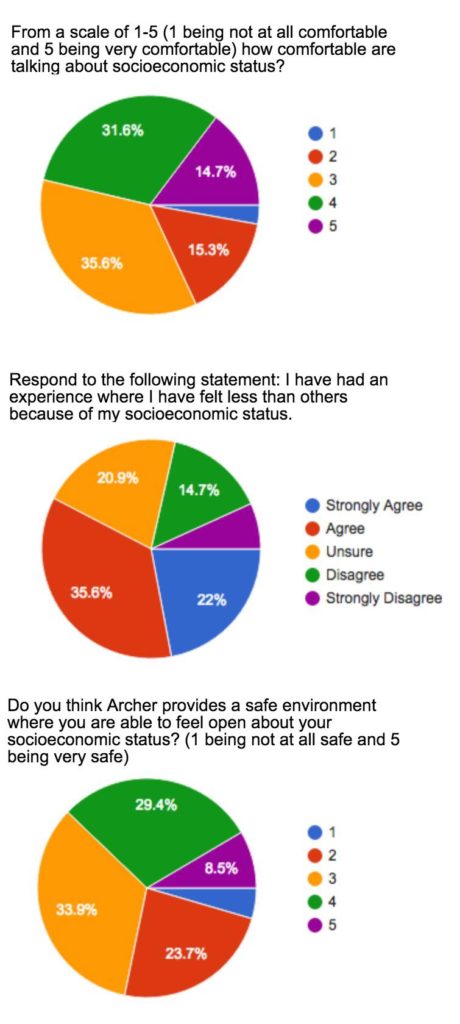
“Being someone who is more middle class than upper, it’s honestly a weird position to be in here at Archer. I’m surrounded by very rich girls who are my age, and sometimes it feels a little disheartening to hear about the privileges my peers have,” one anonymous survey respondent wrote.
“I have seen students without wealth and privilege be concerned that they are embarrassed to bring people back to their house, that they don’t have money to go to Starbucks every day or go around with their friends,” Gold said.
However, other students feel supported and comfortable.
“I think that Archer has a very diverse background when it comes to status, and I feel very comfortable here at Archer…I think Archer does foster a supportive environment for us to talk about it and really feel free to share our emotions,” Alyssa Downer’ 17 said.
While Archer grants financial aid and assistance, it can still be a transition and adjustment for parents and their daughters.
Freshman Natalie Grant, who came to Archer this year, said, “I know that when we were looking at Archer, my parents had to do a lot of refinancing for my brother and I to attend private schools — but once you are here and look around, you realize it isn’t the same for everyone.”
After sharing the survey results with Dean of Students Travis Nesbitt, he said he felt that this is a continuous and important topic for Archer.
“I think that this is an important conversation to have,” he said. “[It] may not be an easy one to have, but important, and I know we are trying to have discussions that are fruitful and helpful.”
“I know that it was a big part of our Diversity Conference this year to bring up socioeconomic status with the goal of creating a place that is safe and supportive,” Nesbitt said. “I think with all things there is room for improvement, and I think it’s important to gage student feedback.”
During Archer’s annual Diversity Conference, which took place in January, the class of 2019 participated in an activity to learn about their own backgrounds in connection to socioeconomic status.
Students who attended the Student Diversity Leadership Conference led an interactive simulation activity for the ninth grade. The student leaders read different prompts that instructed students to take a step forward or backwards if the statement related to them. Throughout the activity, girls found themselves spread out across the room.
The student leaders said that, based on these students’ responses to the prompts, those standing closer to the front were closer to living the American Dream, and those at the back were further away from the American Dream.
After completing the activity, members of the Diversity Leadership Committee received backlash and negative feedback from the freshman class, who felt uncomfortable in the situation.
Diversity board member Anika Bhavnani ’17, one of the student leaders, said, “We wanted to take the ninth graders through an activity that we knew would be sticky, but we wanted people to understand socioeconomic status…at Archer, we all wear the same uniform — we are all ‘the same’ — but we wanted to show how people are [also] different.”
“I think we were all uncomfortable with the way the activity was executed because it forced all of us to participate. Now that we are having conversations about status, we are learning more,” Alex Bazarsky ’19 said.
Shirk spends a unit of the ninth grade history course digging into the logistics of socioeconomic status and how it can affect the community.
“I think that it is a difficult subject to talk about even beyond race, which is interesting in our community. As a teacher it can be hard for me to navigate because I want to make sure that everyone is comfortable,” Shirk said.
At Archer, teachers, advisors and fellow educators have used this topic to spark conversations in classrooms and the overall school environment. The goal is for girls to continue the conversation in their homes and personal lives so that a better understanding of one another as members of the greater community can be reached.



